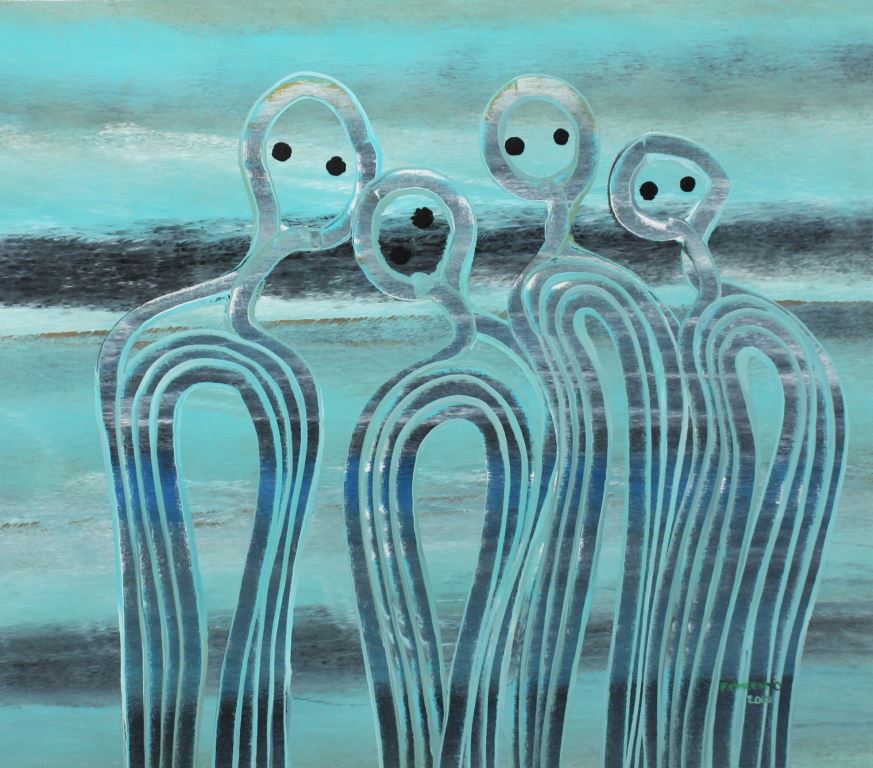Jarjinjirla
Easy-going people in their daily lives, who can become fierce warriors when their land demands it
Origins
These culture formed gradually as the Terse desert became an established part of the region and the elves from the eastern and western lower north Oceasile areas could communicate. Although the actual center of the Terse desert was never claimed by any elven clan (due to how dangerous the area is), traversing it as a group is doable, and clans will cross the area if necessary.Characteristics
Although relatively unknown to outsiders, those that know them, tend to characterize these people as resourceful and knowledgeable, but above all, joyful and easy-going. They take joy in their environment, and even things that to others may seem like challenges, they usually take them with joy. For in their eyes, the desert is where they were made to be. Just like a sand skink wouldn't dream to live in the rainforest, neither does a W dream of living anywhere but the desert.Our bodies are the colour of the wet earth, with freckles the colour of the sand that blows during the long days of summer. Our eyes are the colour of the blooms that come after the rains. Our hair provides us shade and our feet keep us nimble. We are made to be here. We belong.
Inter-species relationships
Unlike most other elven clans in Oceasile, W people don't have frequent communication or interaction with the gripplis of the area. Candle River is seen as inaccessible, given the dangerous Mushroom Forest and the asfixiating walk down the Weeping Gates. To the elves, their frequency of visit, perhaps every 50 years or so, is never seen as extraordinarily infrequent. However, to the gripplis, it means that they will only ever meet the elves once in their lives. This furthers the divide between elves and gripplis, who, in this area, have never formed tight relationships.Marital customs & taboos
Within their own clan, they cannot marry people who were born in the same year as them or their siblings. Within other clans, it is the opposite, one may only marry to another clan if they were born in the same year as them or their siblings. It is considered auspicious to marry someone whose parents (or one of them) are named the same to one's parents. Both the rules and general auspicious signs of marriage are not considered when the person marries away into a different culture. They consider that one marrying into another culture must abandon all preconceptions of their culture first. Similarly, when someone marries into this culture, they are expected to abide by the rules and general auspicious signs of marriage. Given the long life span of elves compared to most other races (not to mention the isolation of living in the desert), marriages into the culture from races from other continents is almost unheard of. Almost.Luck would have it that Trastor mentioned his age as he was telling a fire-side story to the Jarjinjirla clan that had been hosting him for a few moons. They say the looks and glances across the clan members were so obvious, that even their guest noticed, so he joked:
"I may not have the colours of my youth, but come on, your looks are making me worried! Am I whiter than the clouds?"
Everyone laughed his joke and assured him he was still looking youthful and had a lovely orange tint. But everyone's mind was set: he and Jinji had been getting along so well. And he was born in the same year as Marlu, Jinji's youngest brother! Had they finally found someone for her?
Young elves pair up for a while, and if they find themselves comfortable with each other, they will eventually marry. For elves who do not settle once they reach their middle age, their families will start looking for someone suitable for their loved one. This can take many years, but an elven life is long, and as such, there is no hurry to pair them up with someone.
Marriage is sought after, however, and people who do not marry are not usually trusted into leadership positions in their old age.
Remarrying after a spouse's death is very, very uncommon. For an elf who has shared so much with someone else, the task of adapting to someone else (someone who has lived centuries on a different path) is usually seen as undesirable. With a spouse's death begins a "second life", a time of quiet self-reflection or wild awakenings. However an elf decides to do it, it is usually seen as a time to one-self. However, remarrying has no cultural negative connotations.
"I may not have the colours of my youth, but come on, your looks are making me worried! Am I whiter than the clouds?"
Everyone laughed his joke and assured him he was still looking youthful and had a lovely orange tint. But everyone's mind was set: he and Jinji had been getting along so well. And he was born in the same year as Marlu, Jinji's youngest brother! Had they finally found someone for her?



Comments